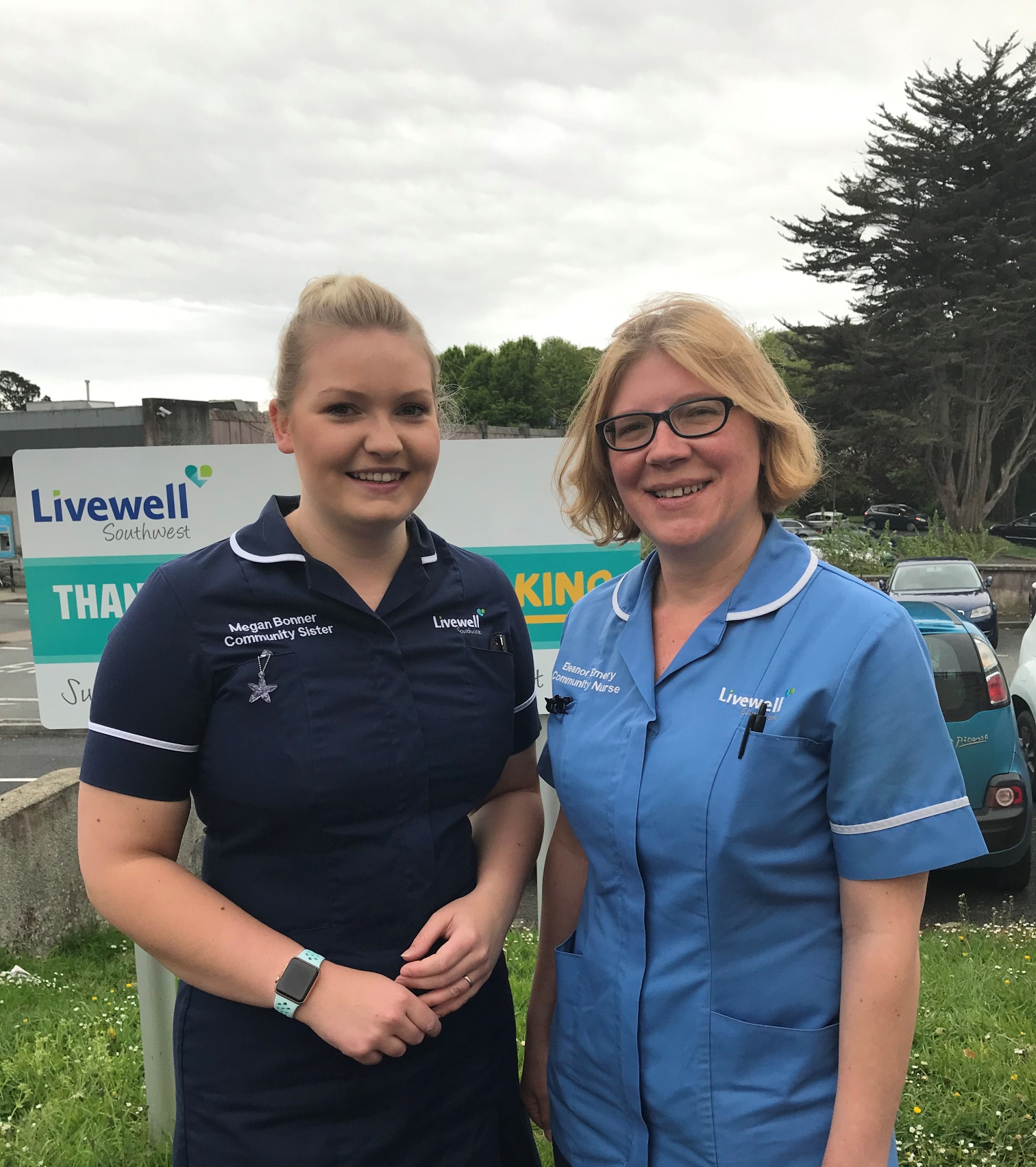Megan-Louise Bonner and Eleanor Emery are two of Livewell Southwest’s specialist community nurses who last year helped care for and support hundreds of people across Plymouth in the last stages of their lives.
“It’s all part of the job,” says Megan, community sister of the East District Nursing Team – one of four teams which provide care for people in their own homes, 365 days a year.
“Being a community nurse involves anything and everything as most of our patients will have long-term conditions such as diabetes so we help to care and manage those conditions.
“And enabling someone to have a personal death in the comfort of their own home with their loved ones is all part of continuing that community-based care until they are no longer with us.”
Patients who want to die at home and are able to are usually referred to the service through GPs, hospitals or from St Luke’s Hospice and can be any age – one of Megan’s recent patients was 23.
The care can last from as little as a week when a patient needs end of life care or for a couple of years as part of palliative care.
Eleanor, one of the community nurses in Megan’s team said: “Our patients are usually classed either as end of life meaning that they are expected to die usually in a couple of weeks or as needing palliative care.
“If someone needs palliative care it doesn’t necessarily mean they are going to die soon. We could be caring for those patients for a couple of years, from the beginning of their treatment right through until they reach the end of their life.
“Our job is to treat, care and support those people throughout those stages and make the remainder of their time as comfortable as possible both for them and their families.
“We’re with them as much as we possibly can be and for as long as they need. It could be an hour once a day or a couple of times a week and it can change throughout depending on those needs.”
Megan added: “We provide a holistic approach to someone’s care which means as well as helping to manage physical symptoms such as pain, we’re also supporting them emotionally and socially.
“I feel very strongly about this because as nurses our job first and foremost is to care for people as a whole, not just their symptoms.
“Even if you’ve accepted that you are going to die it can be really distressing particularly for families so we do what we can to support them as well as our patients.
“For example we’ll talk to them about what is happening to that person, what they want to happen when they die and things to look out for which could mean they are going to pass away such as a change in breathing.
“We’ll also make them aware or put other support in place for them such as getting carers in to help.”
And the care doesn’t stop once the patient dies.
Someone from the team will carry out a bereavement visit to collect any equipment, to make families aware of the next steps and other help available to them.
“It can be difficult and it can be upsetting,” says Megan.
“We have days where we’ll come back to the office and cry, and others where we empathise there and then with the families.
“One of my recent patients died while I was holding her hand and she knew I was there. It was a really peaceful passing and I feel like I was meant to be there at that very moment to bring a last bit of comfort.
“It’s such a rewarding job and we feel so privileged to do what we do and to be there for someone at the end of their life with their families.”
Read more about Dying Matters week and the role of our end of life lead, Sharon King, here.
Read more about Dying Matters week and the experience of Julie, here.


